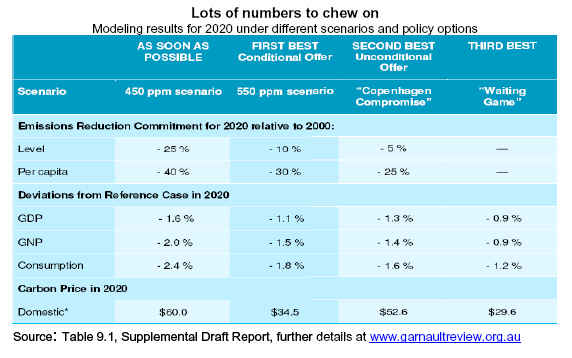Australia Approaches Climate Change With Apprehension
From the November 2008 issue of EEnergy Informer.
Climate change is not a popular topic in a dry continent that relies on coal for over 90% of its electricity generation and a significant portion of its booming exports.
Under its former Premier, John Howard, Australia’s climate changer policy was identical to that of the Bush Administration’s – i.e., there was no policy. The new Premier, Kevin Rudd has decided to change course on environment as well as a number of other issues. But he has quickly learned that while talk is cheap, changing course is not easy, nor cheap.

Professor Ross Garnault, tasked to come up with a climate change strategy for the country, released a massive report at the end of September. It is not an easy read, nor a pleasant one.
Blessed with huge resources of cheap coal, Australia has never pursued nuclear energy or bothered with much else, aside from developing its finite hydro resources. Natural gas has played an increasing role in recent years but coal remains the dominant fuel. Among the OECD countries, it is the most dependent on coal by a wide margin.

Moreover, Australians enjoy a high standard of living, which happens to come with a huge carbon footprint. At little over 19 tons per capita per annum, Aussies are slightly ahead of Americans – which is hard to believe. And they live on the driest continent on earth. If there is global warming, the country is likely to become even drier than it currently is. A prolonged drought has sensitized the population on what may be in store for them if the climate gets warmer and drier.

Making matters worse, Australia is a major coal exporter. If the exports are taken into account, the carbon footprint is even larger. Of course, these are not the kind of subjects folks in resource-rich Queensland or Western Australia want to hear. In short, it is a thankless job to work on climate change policy in Australia.
It is against this background that Professor Garnault has attempted to chart a path that would:
- Make Australia look like a part of the solution as opposed to part of the problem while maintaining high standards of living;
- Protect the country against potentially adverse impacts of a warmer and/or more arid climate; and
- Avoid financial ruin
The report’s recommendations are confusing – and this may be intentional. As a starting point, two long-term global targets for greenhouse gas (GHG) emissions are thrown around. The first, 450 parts per million, is the concentration that many scientists believe we should strive not to exceed, or else. The report, however, “reluctantly†concludes that achieving this target is “not immediately achievable†because we are already at 455 and fast growing. The next target, 550 ppm, is a more likely and manageable target.

In this case, Australia’s share of the burden would be a 10% reduction in emissions by 2020 and 80% by 2050. Then it fudges. “In the absence of an international agreement between high-income countries and China, Australia (should) commit to an emissions reduction target of 5% by 2020.†Oh, and the cost will be manageable, of the order of 0.1 to 0.2% of annual economic growth to 2020.
One thing, however, is clear. Garnault, like many others who have examined global climate change, comes to the conclusion that inaction is not an option. In a 30 Sept Press Release he says, “Of all developed countries, Australia probably has the most to lose from inaction and the most to gain from global mitigation.â€
One Response to 'Australia Approaches Climate Change With Apprehension'
Leave a Reply
You must be logged in to post a comment.

on November 6th, 2008 at 7:00 pm
[…] Australia Approaches Climate Change With Apprehension […]